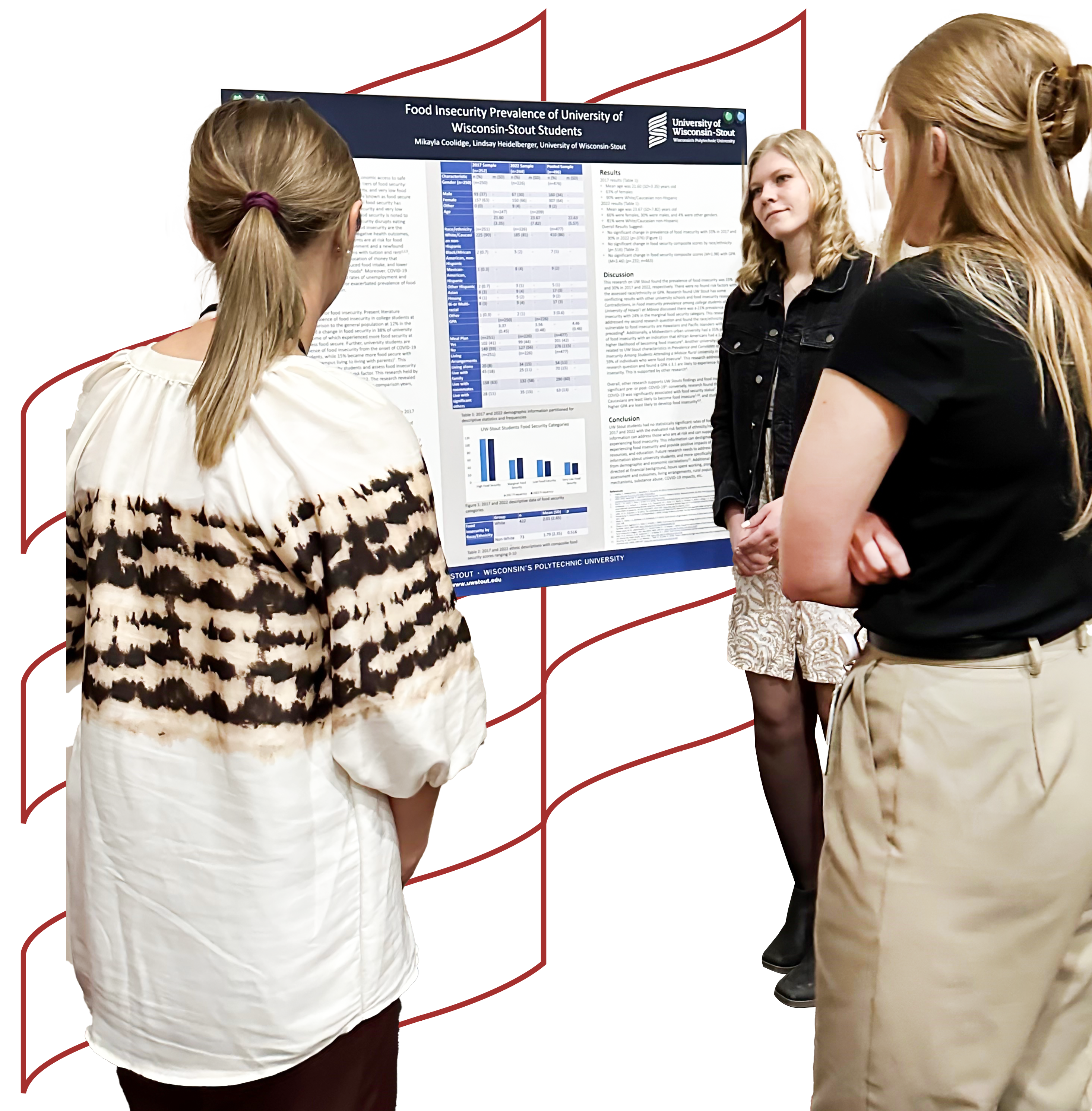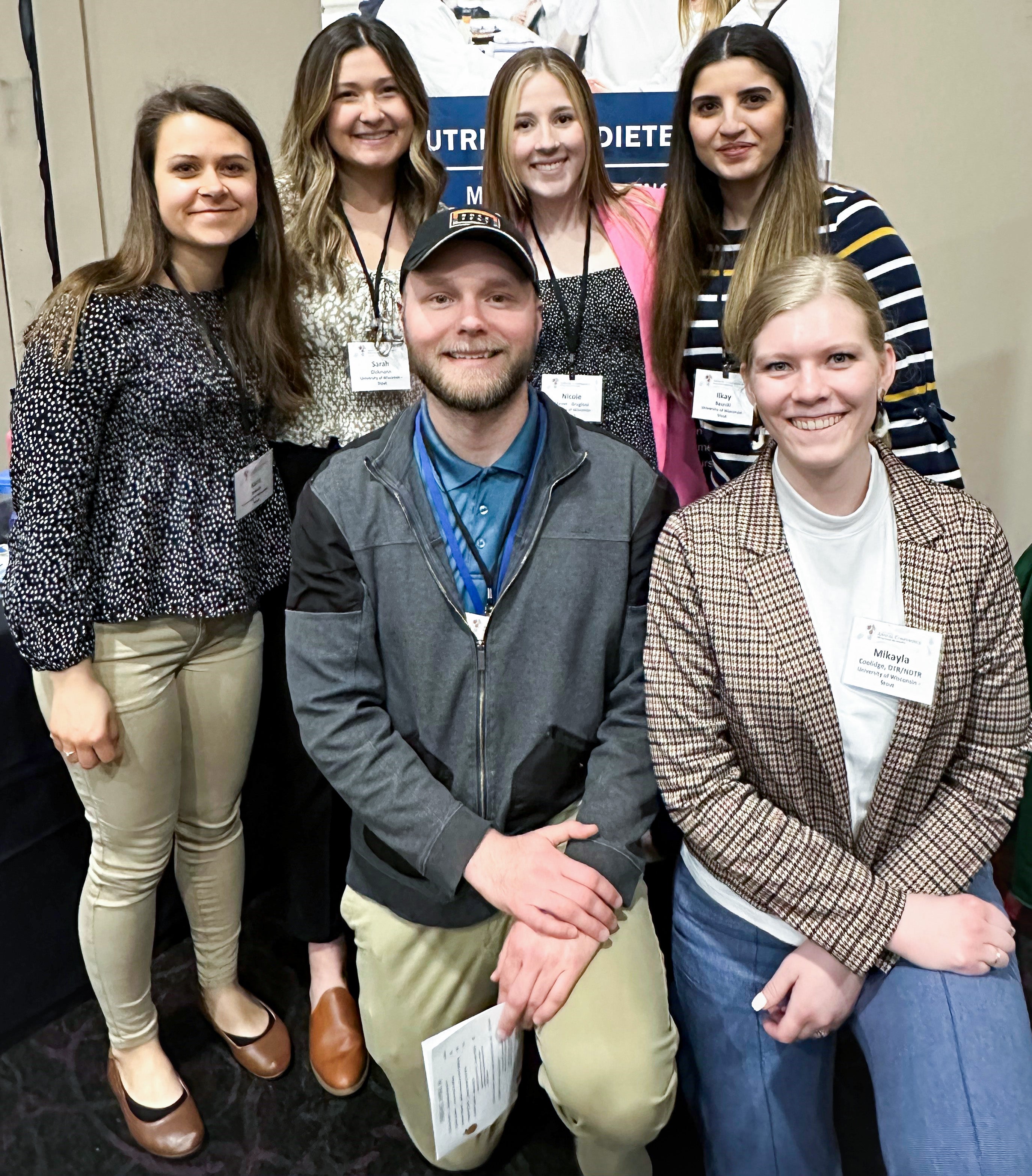Cost of Graduate Credits
Interns in the UW–Stout Dietetic Internship Program enroll as non-degree seeking students, which means they are not eligible for federal financial aid through UW–Stout. However, interns may pursue private or personal loans to cover tuition costs and are typically eligible for loan deferments during the internship period. Interns are required to register for a total of 15 graduate credits in FN-865 Supervised Practice in Medical Nutrition Management: Tuition and fees are subject to change without notice. Interns may choose to: Pay the full tuition amount at the time of registration, or Enroll in a payment plan through UW–Stout’s Student Business Services. UW-Stout graduate students who plan on completing our internship program are eligible to apply for up to $4000 in scholarships to help cover internship expenses. See the Foundation Scholarships for more details.
Transportation Costs
Interns are responsible for their own reliable transportation. Costs of maintaining a vehicle and expenses from driving to sites are also the responsibility of the intern. Costs will vary depending on the distance to each site and could be substantial depending on the different rotation sites for each intern. All interns are expected to arrive in a timely manner for all activities associated with the rotations and the internship in general. This includes attendance to professional meetings and required workshops and conferences. Therefore, the cost of transportation should be factored into the total cost of the program.
Housing Costs
Interns are responsible for arranging and paying for their own housing costs. Interns may choose to live where they desire. See the University Housing website for information on current university housing if living in the Menomonie area.
Health Insurance
All interns will need to show proof of health insurance prior to starting the internship. The health insurance must be for the entire internship. Cost of health insurance is the intern’s responsibility. As a graduate student at UW-Stout, you would be able to buy health insurance through the university if you are not covered by your parents or spouse.
Professional Liability Insurance
Interns are required to have proof of professional liability insurance prior to starting rotations. Interns are responsible for buying the liability insurance. The insurance needs to cover the entire internship year (August – May). As a member of AND, this insurance is available through Proliability, and is endorsed by the Academy of Nutrition and Dietetics.
State AND Conference
Interns will attend their state’s Academy of Nutrition and Dietetics annual conference. The conference is typically held in April and is two days long. The cost of registration for the conference will vary. Interns are also responsible for hotel and transportation costs to attend the conference. Interns will register for the conference on their own when registration becomes available.
Background Check
All interns will need to have a background check completed prior to starting the internship. All rotation sites require this to work in their facility. If your preceptor requires a copy of your background check, the DI program will provide it to the preceptor. If the facility requires a drug screening prior to beginning rotation, the intern must comply. If the facility requires fingerprinting prior to beginning rotation, the intern must comply. To complete the background check go to Castle Branch. The cost is ~$33.
Medical Exams, Tests & Immunizations
All interns must have a physical exam conducted within nine months prior to the start of the internship and provide a written statement from the licensed health care professional attesting to the condition of the intern’s health. Interns must also provide proof of the immunizations and tests that fulfill the requirements of the Joint Commission on Accreditation of Health Care Organizations, the CDC guidelines, and the affiliation agreements between the University of Wisconsin-Stout and the supervised practice sites. Required immunizations and tests include these and may also include others:
- A physician signed health/physical examination within 6 months prior to start of internship with official records and dates of all vaccinations and immunizations, including:
- 2 doses of the MMR vaccine to prove immunity to measles, mumps and rubella
- Proof of immunity to chicken pox (a titer is required if you have had chicken pox) or 2 vaccinations
- 2 Step TB Test which will be valid through the completion of the program (some rotations require additional)
- Tetanus immunization within the past 10 years.
- Flu shot for current season
- Drug Test - 10 panel
- Hepatitis B - 3 shot series. A titer is recommended to show immunity.
- COVID-19 vaccine is highly recommended but not mandatory.







